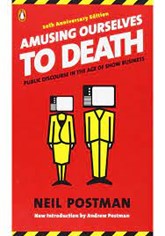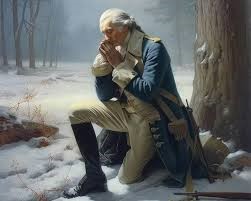The local government is the cornerstone of the American political system. It is closest to the people and can most easily and directly be influenced by them. It is not an overstatement to say that “as go our counties, so goes our nation.”
That is why it is critically important for Americans to understand how our government works, from the bottom all the way to the top.
Many Americans are enamored with national politics but have little understanding of what is happening in their own city and county. This is largely a function of the media we consume. The result is that we are all painfully aware of events that are well beyond our immediate ability to effect, but almost ignorant of those that are within easy reach of our collective influence.

In chapter 5 of his masterpiece “Amusing Ourselves to Death,” Neil Postman described an “information age” phenomenon that has resulted “news from nowhere, addressed to no one in particular, crisscrossing the nation,” and laments that “in a sea of information, there is very little of it to use.”
Postman went on to say that swirl of information flow “made the country into ‘one neighborhood,’ but it was a peculiar one, populated by strangers who knew nothing but the most superficial facts about each other.”
“You may get a sense of what is meant by context-free information by asking yourself the following question: How often does it occur that information provided to you on morning radio or television, or in the morning newspaper, causes you to alter your plans for the day, or take some action you would not have taken, or provides insight into some problem you are required to solve?”
Postman holds that “information derives its importance from the possibilities of action.” He observes that “most of our news is inert, consisting of information that gives us something to talk about but cannot lead to any meaningful action,” and the resulting disconnect between information and action has led us into an era of “diminished social and political potency.”
“You may get a sense of what this means by asking yourself another series of questions: what steps do you plan to take to reduce the conflict in the Middle East? Or the rates of inflation, crime, and unemployment? What are your plans for preserving the environment or reducing the risk of nuclear war? What do you plan to do about NATO, OPEC, [or] the CIA?…I shall take the liberty of answering for you: You plan to do nothing about them. You may of course, cast a ballot for someone who claims to have some plans, as well as the power to act. But this you can do only once every two or four years by giving one hour of your time, hardly a satisfying means of expressing the broad range of opinions you hold…The news elicits from you a variety of opinions about which you can do nothing except to offer them as more news, about which you can do nothing…In the information world…[the] sense of potency was lost, precisely because the whole world became the context for news…[W]e were sent information which answered no question we had asked, and which, in any case, did not permit the right of reply.”
Such is the nature of national politics.
BUT at the local/county level, none of that is true IF you are willing to adjust your frequency, learn where and how to pay attention to the things that you and your fellow citizens CAN affect on a daily/weekly/monthly basis.
The Call to Action: #
See the “Citizen Portal” and the “Pastor Portal” for more details with high information-action ratio regarding how you can do these things.
We have many problems in our nation that seem to defy resolution. However, as Pastor Byron Foxx is fond of saying: “America does not need a red solution or a blue solution. She needs a Bible solution.”
That solution begins when God’s people follow God’s plan for healing:
If my people, which are called by my name, shall humble themselves, and pray, and seek my face, and turn from their wicked ways; then will I will hear from heaven, and will forgive their sin, and will heal their land.

America’s restoration will not come through any national political figure. George Washington is revered as the hero of America’s first War for Independence (and rightly so). However, there were almost 250 battles fought during the war; General Washington fought in just 17 of them, and he won only six of those. Victory was won by local people defending their families, friends, neighbors, and homes (often under the direction and organization of their local pastor).
We cannot ignore national politics, but they should not be our focus. As Colonel (Retired) John Mills stated in his book by the same name, secure the county and “the nation will follow.”